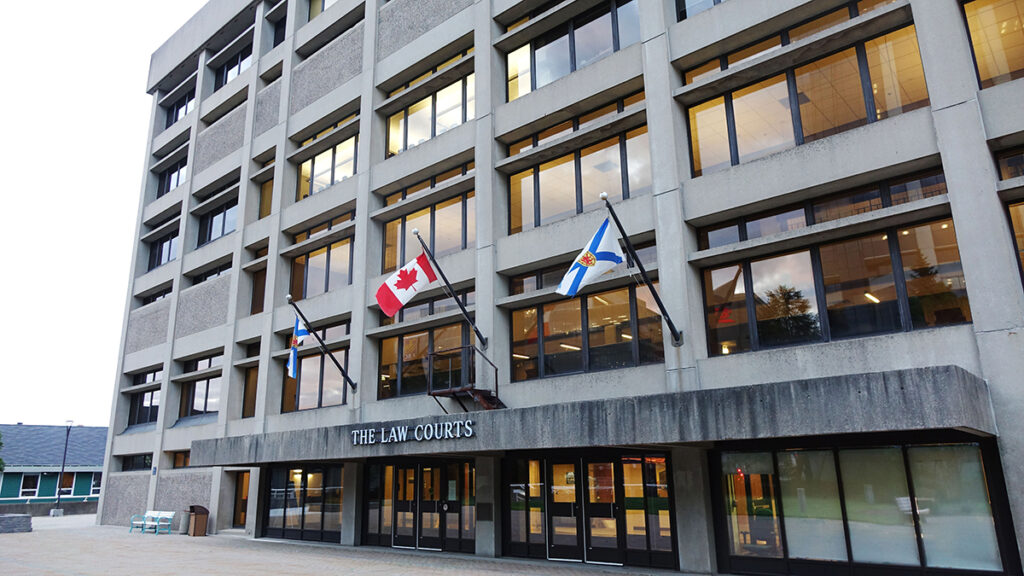HALIFAX, NS: The Justice Centre for Constitutional Freedoms announces that the hearing for Judge Rickcola Brinton’s challenge to the dismissal of her complaint against former Chief Judge of Nova Scotia goes before the Halifax Supreme Court at 9:30 AM ADT on June 6, 2024. The proceedings will take place in Courtroom 701 of the Halifax Law Court – 1815 Upper Water Street, Halifax, NS. The hearing is expected to take the full day.
In 2021, the Chief Judge of the Nova Scotia Provincial Court imposed a vaccine mandate on Provincial Court Judges, only allowing those who had taken the Covid vaccine to hear cases in court.
Judge Rickcola Brinton objected to the imposition of this policy. She told her fellow judges, “I realize I may be in the minority, but I echo some of what [another judge] said, as I have concerns with medical privacy. I also know that the vaccination mandates and passports may be disproportionately impacting racialized communities. And as an essential service, will we be creating a two-tiered society for those who already feel as though we are not free to serve them?”
On this basis, she declined to share her private medical information with the Chief Judge. The Chief Judge proceeded to threaten Judge Brinton with suspension and referred her to the Judicial Council, which handles misconduct complaints against judges. Judge Brinton then went on medical leave. The Chief Judge sent written and phone communications directly to Judge Brinton’s doctor’s office, trying to get the doctor to provide details of Judge Brinton’s medical issues.
On June 7, 2023, Judge Brinton submitted a judicial misconduct complaint against the Chief Judge, alleging that the Chief Judge had applied undue pressure on Judge Brinton to disclose her vaccination status and had improperly contacted Judge Brinton’s doctor. The Chief Justice of the Nova Scotia Supreme Court received and reviewed the complaint. On October 10, 2023, the Chief Justice summarily dismissed that complaint. Judge Brinton then filed a case challenging the dismissal of her complaint against the Chief Judge.
Judge Brinton argues that the Chief Justice improperly dismissed her complaint by expressly deciding to exercise the role of a judicial review committee (normally composed of a judge, a lawyer and a lay person). Judge Brinton further argues that the Chief Justice should have given her an opportunity to respond to the Chief Judge’s submissions in which she argued that Judge Brinton’s complaint should be dismissed. Finally, Judge Brinton argues that the Chief Justice failed to engage in the required balancing process for constitutional rights and principles affected by the dismissal of her complaint, including judicial independence and the right to be free from compelled disclosure of private medical information.
Judge Brinton’s complaint raises issues about the proper functioning of the judiciary, both in Nova Scotia and across Canada. It engages the principles of individual judicial independence, judicial impartiality and, by extension, the rule of law itself. It concerns the working relationship between a chief judge and her fellow judges, and the proper scope of the chief judge’s authority within that relationship.
“Judge Brinton should be commended for taking a principled stand seeking to uphold public trust in the administration of justice, despite majoritarian sentiment at the time promoting vaccine mandates and the disclosure of private medical information,” states Marty Moore, one of the lawyers representing Justice Brinton. “The Nova Scotia Supreme Court is being asked to uphold the integrity of the process for reviewing judicial misconduct complaints, and to ensure that such complaints are fairly determined.”








